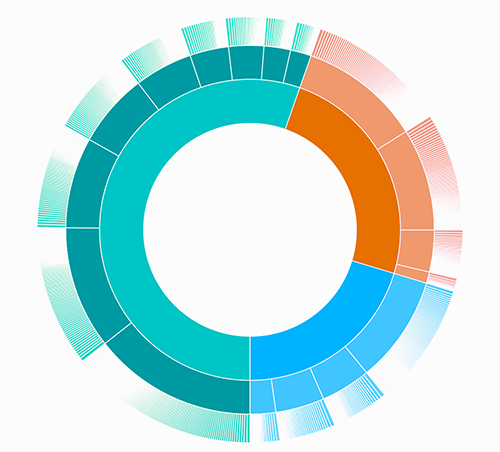Iteround: Sum-safe Rounding for Iterables


Iteround is an organic (standard library) sum-safe rounding library for Python iterables (lists, tuples, dicts).
Example Code:
>>> import iteround
>>> data = {'foo': 60.19012964572332,
'bar': 15.428802458406679,
'baz': 24.381067895870007}
>>> sum(data.values())
100.0
>>> rounded = iteround.saferound(data, 0)
>>> rounded
{'foo': 60.0,
'bar': 16.0,
'baz': 24.0}
>>> sum(rounded.values())
100.0How It Works
Iteround provides a single method, called saferound that takes the
following inputs:
- iterable (list, dict, set, numpy.array, generator): list(y) of numbers
- If a dict is passed in, the values must be all floats.
- places (int): Places for rounding.
- Number of places each item in the set should be rounded to.
- topline (float, optional): Topline to match
- Useful in places where we want the total sum to match a different topline than the sum of iterable. This can useful in cases where original values are altered before passing into the saferound method, but the original sum needs to be maintained.
- strategy (str, optional): The strategy used to clean up rounding errors
-
'difference', 'largest', 'smallest'. Defaults to 'difference'
'difference' seeks to minimize the sum of the array of the differences between the original value and the rounded value of each item in the iterable. It will adjust the items with the largest difference to preserve the sum. This is the default.
'largest' for any post rounding adjustments, sort the array by the largest values to smallest and adjust those first.
'smallest' for any post rounding adjustments, sort the array by the smallest values to largest, adjust the smaller ones first.
- Strategy strings are available as:
-
iteround.DIFFERENCEiteround.LARGESTiteround.SMALLEST
If 'dict' or 'tuple' are passed, result will be dict or tuple. All other iterables (range, map, np.array, etc) will return list.
Feature Support
Iteround definitely supports at least these iterables.
- list
- tuple
- dict
- OrderedDict
Iteround officially supports Python 2.7 & 3.4–3.6.
Installation
To install Iteround, use pipenv (or pip, of course):
$ pipenv install iteroundDocumentation
Documentation beyond this readme will be available soon.
How to Contribute
- Check for open issues or open a fresh issue to start a discussion around a feature idea or a bug.
- Fork the repository on GitHub to start making your changes to the master branch (or branch off of it).
- Write a test which shows that the bug was fixed or that the feature works as expected.
- Send a pull request. Make sure to add yourself to AUTHORS.
